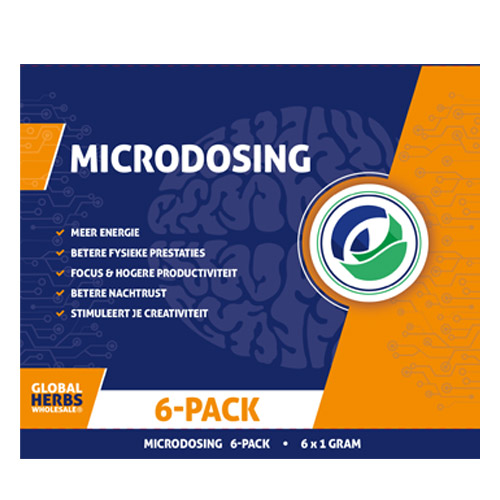
New study finds 79% of microdosers report improvement in mental health
Here at Avalon we have been talking a lot about the potential benefits of using psychedelics. For thousands of years, people have been using certain psychedelics to help with mental and physical problems. Now, a group of scientists suggest that microdosing these substances may actually help with improving mental health.
“Forty-four percent of all respondents perceived that their mental health was much better and 35.8% perceived that it was somewhat better because of microdosing”
Worth a shot...
 The last few years, microdosing psychedelics and the interest in this phenomenon has been steadily increasing all around the world. Experts think the increase of interest in these substances might be because of the lack of effective treatments for certain psychiatric disorders, such as depression and post-traumatic stress disorder (PTSD). This makes people experimenting more with lesser known substances that might prove effective. It’s worth a shot, they might think.
The last few years, microdosing psychedelics and the interest in this phenomenon has been steadily increasing all around the world. Experts think the increase of interest in these substances might be because of the lack of effective treatments for certain psychiatric disorders, such as depression and post-traumatic stress disorder (PTSD). This makes people experimenting more with lesser known substances that might prove effective. It’s worth a shot, they might think.
Study authors Toby Lea and his team were motivated to examine a particular gap in the research by focusing on the phenomenon called “microdosing”. When people microdose, they take just a very small dose of a psychedelic substance, such as LSD, psilocybin, mescaline or DMT, to try to benefit from the positive effects of these substances, while not having the hallucinogenic effects. Basically, it means having the pro’s, without having an actual trip.
Also Read: Is this company turning beer into psychedelics?
Motivations for microdosing
“To date, most quantitative microdosing studies have excluded people with a history of mental illness, have not reported microdosing motivations, and no study has examined the sociodemographic and other correlates of microdosing as mental health and substance use therapies, nor the sociodemographic and other correlates of perceived improvements in mental health that people attribute to microdosing,” Lea and colleagues say.
For this study, an online survey was used to question 1102 individuals who were either currently microdosing, or had tried microdosing in the past. The average age of respondents was 33, and 57% had at some point been diagnosed with a mental health disorder.
When questioned about their motivations for microdosing, 39% indicated that improving their mental health was their main motivation. Of these, 21% were microdosing to improve their depression, 7% for their anxiety, 9% for other mental disorders including PTSD, and 2% for drug or alcohol use.
Also Read: African Dream Herb - One of Africa’s best kept secrets for lucid dreams
Supplementing medication or counselling
But even more importantly: 85% of all those trying out microdosing to improve their mental health, had previously received either medication or counselling therapy to help with their issues. This might mean that those methods were not effective enough, so the patients later resorted to trying out psychedelics. “Half (50.6%) reported having ceased antidepressants and 39.7% reported having ceased other psychiatric medications.”
“Respondents who had been microdosing for a longer duration were also more likely to be motivated to microdose for mental health. This may suggest that microdosing is working for these people, and that they are continuing to microdose as an ongoing therapy to replace or supplement psychiatric medications, some with the knowledge of their doctor and/or psychotherapist,” Lea and associates note.
Also Read: Is psychedelic nasal spray the future of micro-dosing?
Success rate of 79%
So what did they find? Well, the practice of microdosing elicited positive mental health effects, in short. As the researchers report, “Forty-four percent of all respondents perceived that their mental health was much better and 35.8% perceived that it was somewhat better because of microdosing. Nineteen percent of respondents perceived no changes to their mental health.” Not all individuals reported postive effects: about 1,5% indicated that after microdosing, their mental health was worse than before.
So while these effects sound amazing, there were some limitations to the study (as always). For instance: it is not possible to discern from their study whether the reported mental health improvements were due to microdosing, or rather the result of a placebo effect or other factors like lifestyle changes.
“While we await the findings of clinical trials, which could take some years, people will continue to self-manage their health with microdosing. It is therefore important to monitor people’s microdosing practices and experiences in the long term in order to provide appropriate harm reduction resources and other support"









